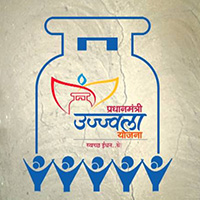Vishwanath Pratap Singh
| Full Name | Vishwanath Pratap Singh |
| Date of Birth | June 25, 1931 |
| Place of Birth | Nurpur, Aligarh District, UP |
| Spouse | Smt. Indira Singh |
| Children | 2 (Including Ajeya Pratap Singh) |
| Date of Death | November 27, 2008 |
| Place of Death | New Delhi, India |
| Religion | Hinduism |
| Political Party | Janata Dal, Indian National Congress (INC), Janata Party |

Introduction:
Vishwanath Pratap Singh, known as V. P. Singh, was a prominent Indian politician who served as the 8th Prime Minister of India from 1989 to 1990. He was an influential leader who made significant contributions to social justice and Indian politics. V. P. Singh’s tenure as Prime Minister is best remembered for his decisive actions to uplift the backward classes in India through the implementation of the Mandal Commission Report. He was known for his unwavering stance against corruption and for his legacy as a man of principles.
Childhood & Early Life:
V. P. Singh was born on June 25, 1931, in Nurpur, a small village in the Aligarh district of Uttar Pradesh, into a royal family. His family had a history of ruling the region and had a strong influence on local politics. Despite his royal lineage, V. P. Singh grew up with a deep connection to rural life, and his exposure to the struggles of ordinary people in villages played a crucial role in shaping his views on social justice and inequality.
Singh received his early education in various schools and later graduated in Political Science from Allahabad University, which helped him develop his interest in political affairs and social issues. His academic training, combined with his experiences growing up in a rural environment, influenced his later political choices.
Political Career:
V. P. Singh’s political journey began when he joined the Indian National Congress (INC), the dominant political party at the time. In 1967, he was elected to the Rajya Sabha, the upper house of the Indian Parliament, marking the beginning of his national political career. His early positions included serving as the Minister of State for Finance in Indira Gandhi’s government.
During the early years of his political career, V. P. Singh was seen as an ambitious leader who was part of the Congress establishment. However, as his political journey progressed, Singh started distancing himself from the Congress due to his growing disillusionment with corruption and the autocratic leadership under Indira Gandhi.
In 1977, after the emergency period in India, V. P. Singh was one of the key members who became associated with the Janata Party, a coalition formed to oppose Indira Gandhi. He soon became the Chief Minister of Uttar Pradesh from 1980 to 1982, where his focus was on rural development and expanding the state’s infrastructure.
As Prime Minister of India: In the 1989 general elections, V. P. Singh emerged as a leader of a coalition government, which was backed by the Janata Dal and supported by other smaller parties. He became the Prime Minister of India on December 2, 1989. His government was formed amidst political instability and the rise of coalition politics in India.
One of his most notable actions as Prime Minister was the implementation of the Mandal Commission Report in 1990, which recommended reservations (affirmative action) for Other Backward Classes (OBCs) in government jobs and educational institutions. This was a transformative decision that divided the country but also sparked a nationwide conversation about caste-based reservations and the social upliftment of marginalized communities.
Major Works:
- Implementation of the Mandal Commission Report (1990): The Mandal Commission, appointed in 1979 by then-Prime Minister Morarji Desai, had submitted its report recommending 27% reservations for OBCs in government jobs and educational institutions. After becoming Prime Minister, V. P. Singh took the monumental step of implementing the report in 1990. This decision led to widespread protests, especially among upper-caste communities, and sparked both support and opposition across India. Singh’s move helped push the country toward addressing issues of social inequality, but it also caused a sharp political divide.
- Corruption and Bofors Scandal: Another key aspect of V. P. Singh’s political legacy was his strong stance against corruption. As the Defence Minister in Rajiv Gandhi’s government in the 1980s, V. P. Singh had raised concerns about the Bofors defense deal, which involved allegations of kickbacks paid to middlemen for securing a deal for artillery guns. Singh’s opposition to the deal led to his eventual resignation as Defense Minister in 1987. Later, he became Prime Minister and continued to demand accountability for the Bofors scandal, which was a major issue during his tenure.
- Social Justice and Reforms: V. P. Singh’s government is widely credited with prioritizing social justice reforms. He supported policies that aimed at uplifting the backward classes, Dalits, and minorities. His tenure is often seen as a defining moment for affirmative action in India. Singh also initiated reforms in agriculture and education aimed at empowering the rural population.
Awards & Achievements:
- Padma Vibhushan (Posthumous): In recognition of his significant contributions to Indian politics and his efforts to bring social justice, V. P. Singh was awarded the prestigious Padma Vibhushan in 2009.
- Social Justice Champion: V. P. Singh is remembered as a political leader who was committed to the upliftment of backward classes, Dalits, and marginalized groups. His decision to implement the Mandal Commission report remains a cornerstone of his legacy.
Legacy:
V. P. Singh’s legacy as a reformist and champion of social justice continues to influence Indian politics today. He was not just a political figure but a symbol of standing up for what he believed was right, even if it was politically costly. His determination to uphold the Mandal Commission’s recommendations in the face of severe opposition showcased his commitment to challenging social hierarchies and bringing about systemic changes in Indian society.
Trivia:
- Moral Integrity: V. P. Singh was known for his unyielding moral stance. Despite facing significant political backlash after implementing the Mandal Commission Report, he never wavered from his principles, even when it cost him support.
- Janata Dal Foundation: Singh was instrumental in the formation of the Janata Dal party, which became a significant political force in India during the late 1980s and early 1990s.
- Interest in Literature: Apart from politics, Singh had a passion for literature and was an avid reader, often quoted as saying that he found solace in reading during times of crisis.
- A Complex Legacy: While hailed by many as a hero for his commitment to social justice, Singh’s decisions also earned him criticism, particularly from those who felt that the reservation policy could lead to divisiveness in Indian society.
Conclusion:
V. P. Singh’s political career was defined by his willingness to make difficult, and at times controversial, decisions in the pursuit of social justice. His government, though brief, left a lasting impact on India, particularly in terms of caste-based reservations and the demand for accountability in cases of corruption. His commitment to ethical politics, even in the face of adversity, and his efforts to bring about reform for marginalized communities, continues to resonate with many Indians today.
Key Terms:
- anti-corruption leader ,
- Bofors scandal ,
- caste-based reservations ,
- Indian Politics ,
- Indian social reforms ,
- Janata Dal ,
- Mandal Commission ,
- OBC reservations ,
- Political Legacy ,
- Prime Minister of India ,
- social justice reforms ,
- Uttar Pradesh Chief Minister ,
- V. P. Singh ,
- V. P. Singh achievements ,
- V. P. Singh biography ,
- V. P. Singh legacy
Disclaimer: The information provided here has been compiled from various sources to the best of our knowledge. While every effort has been made to ensure the accuracy of the details, there may be occasional errors or omissions. If you find any discrepancies or incorrect information, kindly inform us so we can make the necessary corrections. Thank you for your understanding and cooperation.





